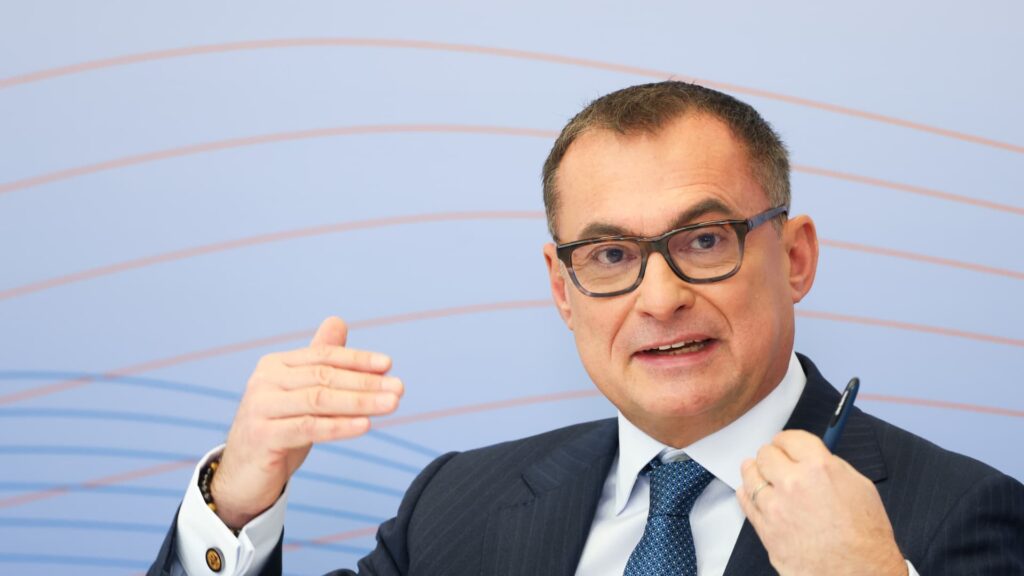Joachim Nagel, president of the Deutsche Bundesbank, during a presentation of the Bundesbank’s 2024 Annual Report in Frankfurt, Germany, on Tuesday, Feb. 25, 2025.
Alex Kraus | Bloomberg | Getty Images
Germany’s central bank proposed on Tuesday a far-reaching reform of the country’s constitutionally enshrined cap on borrowing, which could give the government up to 220 billion euros ($232 billion) worth of extra cash for defence and investment this decade.
Some investors and political parties argue the so-called debt brake, which limits budget deficits to 0.35% of gross domestic product, stymies economic growth. The German economy, Europe’s largest, shrank for the past two years and the debt brake limits state investment at a time when the private sector is struggling and consumers are losing confidence.
While increased spending flexibility will be key in reviving Germany’s economic fortunes, chancellor-in-waiting Friedrich Merz has said that a quick reform of fiscal rules is out of the question given the complexities.
However, the need for Germany to beef up defence spending adds urgency to the need to amend fiscal rules, especially after the United States said it would pause military aid to Ukraine.
The core of the Bundesbank’s proposal is to increase the government’s scope for borrowing to a maximum of 1.4% of GDP, if debt is below 60% of GDP, with 0.9 percentage point of the total devoted to investments, mostly fixed asset formation.
If debt is above 60% of GDP, then borrowing would be limited to 0.9%, with all of that going to investments.
“If the debt ratio is below 60%, the debt capacity increases by a cumulative 220 billion euros compared to the status quo by 2030,” the Bundesbank said. “If the debt ratio is above 60%… then this amount will be 100 billion euros higher by 2030 than in the status quo.”
Germany’s gross debt is around 62% of GDP and inching down, though only slowly given weak growth. Although this is a relatively low figure among the world’s largest economies, debt and inflation-wary German voters often reward austere governments.
The rationale behind the Bundesbank’s figures is that debt would continue to fall back to towards 60% even in case or relatively weak growth.
The outgoing parliament could still greenlight a new special fund to boost defence spending and ensure quick help to Ukraine.
Such a special fund is also a possibility, the Bundesbank, said, adding that its own preference was for a debt brake reform since a special fund comes with limits and would be less transparent.
“We would prefer a fundamental reform of the debt brake that affords better predictability, but a special fund with comparable financial parameters would also be an option,” Bundesbank President Joachim Nagel said.










